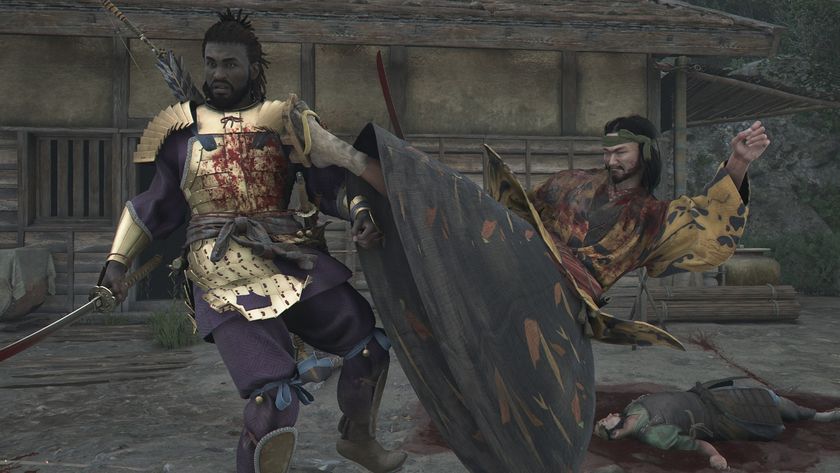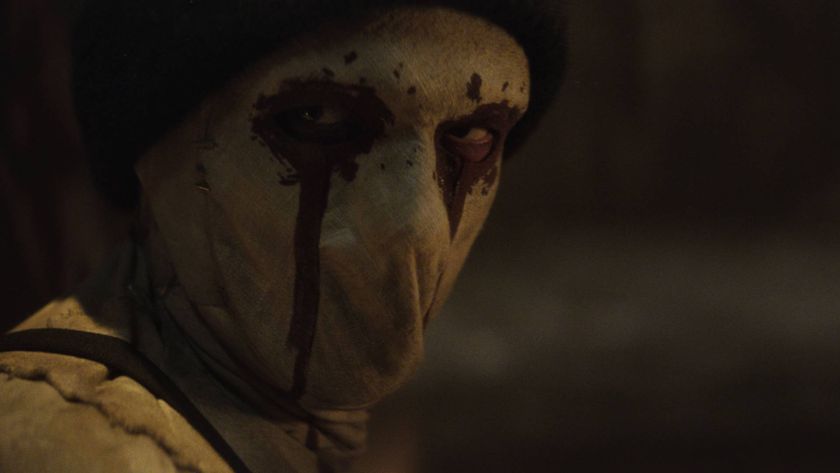Mordors orcs are slain, its time to chase some chickens in the Shire
Shadow of Mordor has it easy. It's obvious what makes Mordor a cool place to put a video game - it's so infested with Orcs that if you set a musical there it would just be called Orcs! with an exclamation point, or maybe two. Elsewhere in Middle-Earth you've got equally game-ifiable locations like the original dungeon crawl through the Mines of Moria, sprawling battlefields at Pelennor, and a siege at Helms Deep so outstanding that even Gears Of War 3 borrowed a level from it. Games set in J. R. R. Tolkien's world have recreated all of these locations, but then those games also have to answer the question: "What do we do about the Shire?"
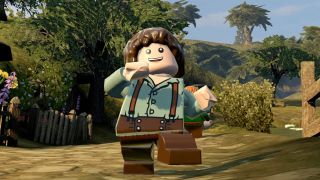
The Shire doesn't have Orcs, or much in the way menace at all. What the Shire has is whimsy, comfort, and a wide selection of cheeses. It's the part of Middle-Earth I'd most enjoy living in, but it's not exactly Thrillsville. Yet it's a rare Lord Of The Rings game that disregards it entirely, because thematically the Shire is central. Frodo's adventure begins in this perfect rural idyll and ends in a wasteland of ash; the boring hometown he's excited to leave behind becomes a symbol of everything worth preserving.
Without nice places like the Shire you end up with Westeros, where everywhere is so uniformly awful that it's tempting to throw up your hands and side with #teamwhitewalker. But just because it's essential doesn't mean it's interesting, and designers have struggled with what players should actually do during the obligatory Shire sequences in their games.
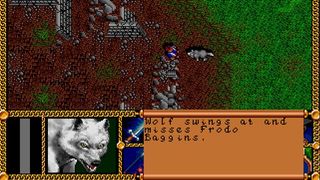
Back in 1991 Interplay made The Lord Of The Rings Vol. 1, a top-down roleplaying game with impressive open-endedness for its time. While you roughly followed Frodo and pals' trajectory through the first book, it also let you diverge from the path and choose different members for your Fellowship, as well as different adventures to have along the way. Rather than leaving the Shire as soon as you've handed over the key to Bag End, you can hang around and find a missing dog or save some Hobbit children from a giant spider. (Since that's never mentioned in the books we have to assume those kids die because canon Frodo is one of those "get out of the Hinterlands" players who don't mess with non-essential sidequests.)
The highlight of these sidequests is the discovery that Big Folk have come to Hobbiton and taken over the mill, replacing its workings with new-fangled machinery presaging the industrial revolution that will end the Hobbits' bucolic way of life. So you break in under cover of darkness, sneak past the guards, and engage in a bit of sabotage, destroying the machines and taking back the means of production like tiny Hobbit Marxists. Viva la Shire!
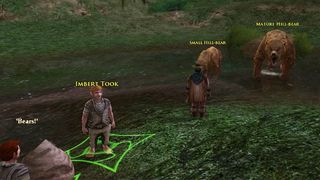
There's a charming incongruousness to these quests, which try to maintain the atmosphere of the place while still giving players an excuse to have a fight or blow stuff up if that's what they're into. It's even more pronounced in The Lord Of The Rings Online because MMO designers feel obliged to fill every area with things to do so subscribers get their money's worth. Its version of the Shire has evenly-spaced wolves roaming its fields because that's how you make an MMO, but also has sidequests that make those in The Lord Of The Rings Vol. 1 seem perfectly normal.
In the Took household a Hobbit named Adelard convinces you to appease the ghost of an ancestor who keeps messing up the library by bringing him a plate of ribs and setting off fireworks, since that's a Hobbit's answer to "What is best in life?". When that doesn't work, you enter the library alone to deal with the ghost yourself - at which point it's revealed to be a squirrel that was hiding behind a shelf this whole time. The climax to a four-part questline is "you chase a squirrel out of a room."
Sign up to the 12DOVE Newsletter
Weekly digests, tales from the communities you love, and more
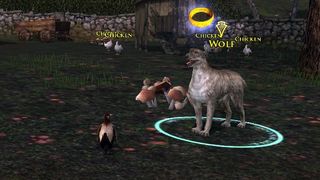
Other sidequests have you delivering pies while avoiding hungry locals or helping Hobbits get a bag down from a tree. That one may sound easy, but first you have to defeat the swarm of bees whose hive the Hobbits hit while throwing rocks at said bag, and then you have to defeat every bear for a mile around Hobbiton, racing to attack once they smell the honey - waves and waves of hill-bears charging toward you because you tried to knock a bag off a branch.
Strangest of all is the Flying The Coop questline, in which you gain the ability to magically transform into a chicken (it's never explained how) and then travel the land seeking animal allies to help protect the region's fowls from predators. Suddenly those evenly-spaced wolves become a serious threat. Your only abilities as a chicken are "run" and "play dead" and death comes quickly. Later you can unlock Chicken Play as a mode of its own, leave the Shire and travel all Middle-Earth as a chicken. Yes, you can simply walk into Mordor, if you don't get eaten first.
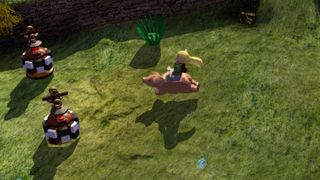
You'd expect LEGO The Lord Of The Rings to have the goofiest depiction of the Shire, and yet hunting through it for collectibles by going fishing or building a bridge feels entirely Hobbity. The only battle you have there is with some moles. There's also a race in which you ride an adorable LEGO pig and, more than any of the other side activities games give you to do in the Shire, that feels entirely appropriate. I can imagine the pie-loving peaceniks of Hobbiton having a few ales, smoking some pipeweed, and waddling unsteadily to the top paddock for a pig race.
There's a cliche in roleplaying games that the starter village is a boring place you leave as quickly as possible to get to the cities and dungeons where the game really starts. The Shire's importance to Tolkien fans, both through its narrative significance and our sentimental attachment to the place, inspires game developers to make it into something more than just Tutorial Town. In putting so much effort into making somewhere that feels homely and safe, a place that can't be burned down to inspire your revenge quest, they make a Shire that's often silly but always memorable. And that's exactly how it should be.





